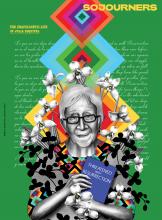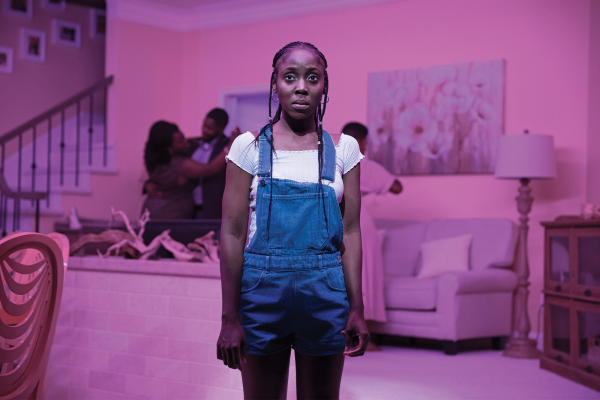AT THE END of Jackie Sibblies Drury’s landmark drama “Fairview,” the audience faces a deep and enduring question: “Are we able to look through another’s eyes? Or are we merely reflecting on what we’re willing, what we want to see?” To bring us to the point where we’re able to make this query, Drury takes us on a ride through a landscape of African American theatrical tropes, sometimes familiar and sometimes unsettling, so that we are better able to face ourselves, as discomforting as that is.
The beginning seems fairly rote, as a family gets ready for a birthday party in an immaculately white living room. We could be in the home of the Huxtables, chuckling along with the laugh track. Beverly, the perfectionist mother who wishes for everything to be just right for Grandma’s celebration, hovers over all, brushing on the finishing touches.
But, if you look and listen closely, there are cracks that begin to show: the odd wavering of the soundtrack and teenage daughter Keisha turning to address the audience in a moment of Brechtian shock. Then we find that we are not seeing TV-perfect domestic bliss. Keisha comments on the beautiful perfection and longing for her bright future, standing at its threshold, just waiting to seize the day.
Read the Full Article

